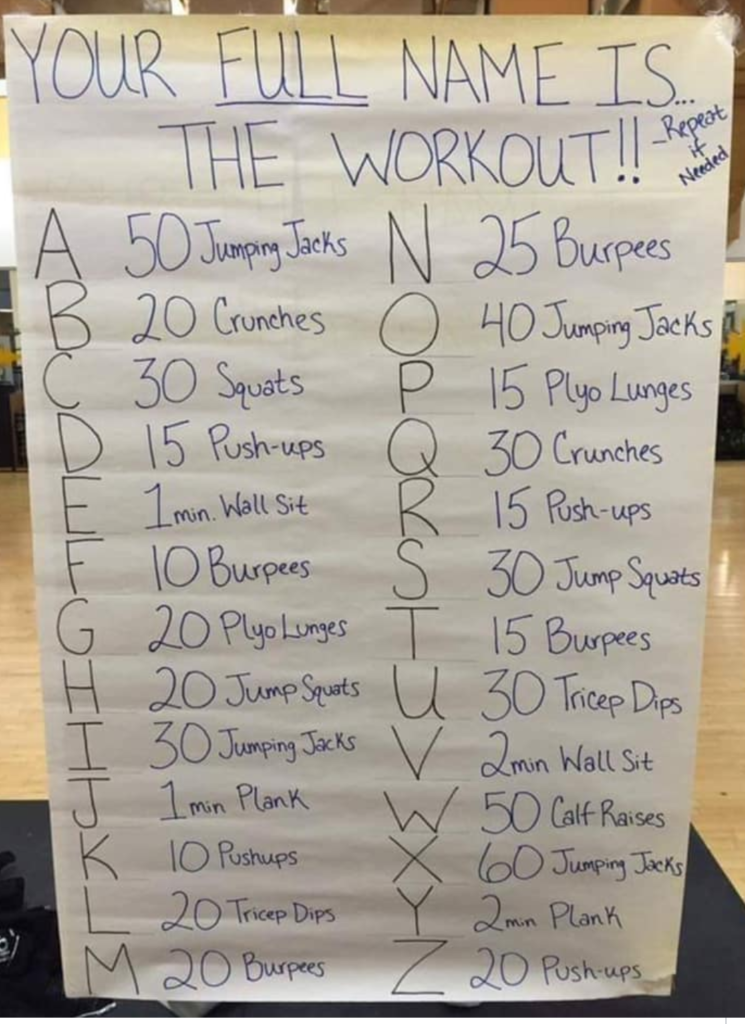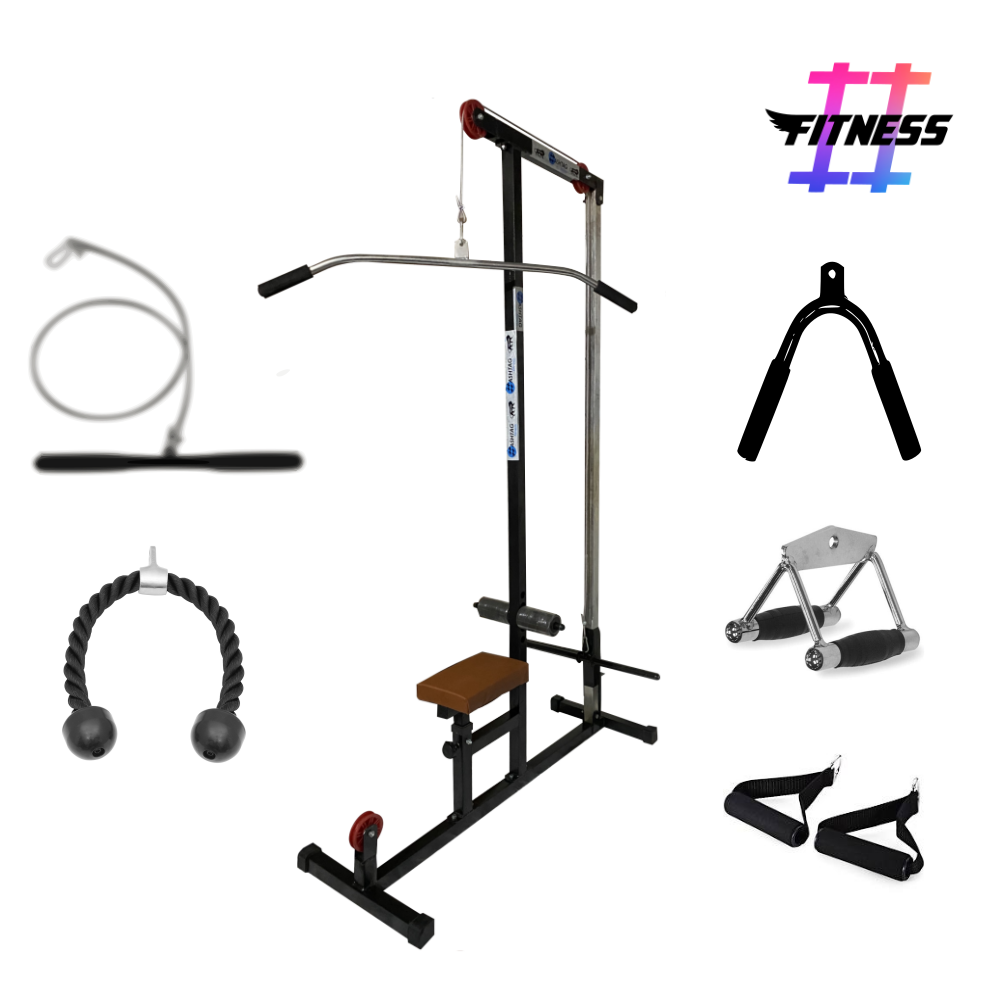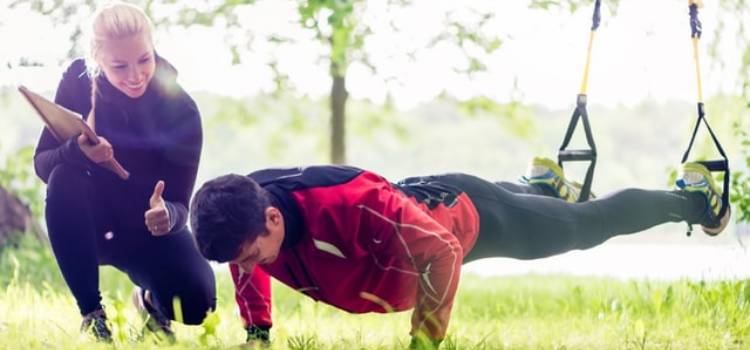
There are many important things you need to know if you wish to become a New Jersey Personal Trainer. These factors include average salary, educational requirements, and employers. These factors can help you decide if the job is right. Continue reading to find out more about the job responsibilities and duties of a New Jersey personal coach.
New Jersey Personal trainers earn an average salary
Personal trainers are a good career choice for those who love health and fitness. This job is both lucrative and rewarding. Personal trainers teach clients nutrition and fitness in gyms and health club. They motivate clients to reach their fitness goals and keep them motivated.
New Jersey has a decent number of opportunities for working as a personal trainer. While the state ranks 46th for fitness access, the obesity rate is relatively low, making the market for fitness professionals a decent one. A New Jersey personal trainer can expect to work with a mixture of clients who are moderately fit and have modest goals. A portion of the market will also include clients who are image conscious.

A personal trainer in New Jersey can expect to earn an annual salary of $68,437. This is higher that the $69k184 average. The actual salary you receive will depend on where you live, your experience and your education.
New Jersey requirements for a trainer personal
You should know that New Jersey has very strict licensing requirements if you want to be a personal trainer. Before you can legally practice in New Jersey, you must have a certificate from a recognized agency. You can get your certification through a local school.
You must complete a formal education program and certification course before you can become a certified personal trainer in New Jersey. There are many programs with different levels and certifications to choose from. Some offer hands-on workshops over a few days or weeks, while others are self-paced and can be completed from home. New Jersey's most recent job advertisements can give you valuable insight into this industry.
If you are planning to start a career as a personal trainer in New Jersey, you should choose a city that has a large population. Newark has a large community, which can translate into more clients. Also, more populous cities are more likely to open their arms to new businesses.

New Jersey's personal trainer employers
Personal trainers are a rewarding career option for those who want to help people achieve better health and fitness. This career requires national certification and education in exercise science. As a personal trainer, you'll provide motivation and guidance to your clients as they work toward their fitness goals.
New Jersey's personal training professionals are highly-skilled and have some of the highest wages in the field. Many of these trainers work at high-energy spas, gyms, and hospitals. They also work for independent businesses and clients who are wealthy. In New Jersey, salaries for personal trainers range from an entry-level salary of $44,893 to a senior-level salary of $74,347, according to recent survey data collected by New Jersey employers.
There are a few things to keep in mind before applying for a job as a personal trainer in New Jersey. First, ensure that you have the right education. It is vital to have at the very least a high-school diploma and basic life support certifications through the American Heart Association.
FAQ
Is it possible to gain weight by exercising?
Not at all. Exercising can help you maintain your current weight. Exercise regularly will build muscles and increase metabolism. You'll burn more calories per day if you do. This means your body won’t store as much weight.
What is Cardio Exercises?
Cardiovascular activities are any exercise that makes your heart work harder than normal. These include swimming, running, bicycling or rowing. These activities increase metabolism and burn fat. They also strengthen your heart and lungs, which makes them great ways to stay fit.
Can I have alcohol at work?
Drinking alcohol is high in calories so it's best to not consume too much while working out. A moderate amount of alcohol, one drink per day, may be beneficial for endurance during exercise. It can also help reduce fatigue and muscle pains caused by intense exercise.
Why is physical exercise important?
For our health, physical fitness is vital. To maintain our strength, flexibility and weight, as well as our cardiovascular system, we must exercise regularly. Exercise can help you sleep better, reduce stress, increase self-esteem, and increase energy levels throughout your day.
Is exercise good for me?
Yes. Regular exercise will help you to lose weight by burning extra calories. Exercise also helps keep your metabolism up, so you continue to burn calories even when you aren't exercising.
Do I need a warm-up before I go?
Warming up before you start an activity will reduce muscle soreness. Warming up can be done in many ways: running, walking, jumping ropes, stretching and cycling are all options. You should start slow and gradually increase your speed and intensity.
What if I am exercising and want to eat?
Yes. Yes. You can eat whatever you want while you exercise. Low-calorie snacks like watermelon and carrots, celery apples, bananas, grapes, celery, celery, celery, celery, celery, apple, bananas, and carrots are best. These foods provide nutrients that improve your performance during exercise.
Statistics
- In high-income countries, 26% of men and 35% of women were insufficiently physically active, as compared to 12% of men and 24% of women in low-income countries. (who.int)
- Physical activity confers the following maternal and fetal health benefits: a decreased risk of pre-eclampsia, gestational hypertension, gestational diabetes (for example, 30% reduction in risk) (who.int)
- An estimated 110,000 deaths per year could be prevented (cdc.gov)
- According to the Centers for Disease Control and Prevention, chronic diseases cause 7 out of 10 deaths in the U.S., and treating chronic diseases accounts for 86% of U.S. healthcare costs. (mana.md)
External Links
How To
How To Stay Fit At 40
This article provides guidance for people who want to keep their bodies strong and healthy, even after turning 40. This article provides basic information on how to eat well, exercise, sleep well, and take care your mental health. This article contains tips and tricks to live longer, healthier lives.
-
Healthy eating habits are key to staying fit. You should steer clear of processed food products, and eat whole grains and fruits, vegetables, lean proteins, fish, eggs, nuts, seeds, beans and legumes. Don't be afraid to change your diet if the food you are eating is not what you prefer. Do not starve yourself, this will not help with weight loss. Start incorporating small amounts of new foods into your daily diet. If you eat chicken breast most of the time, try turkey one week. If you are a fan of pasta, rice is a good option. Try to incorporate these types of foods into your diet so that they become part of your everyday life.
-
Exercise – Make sure you exercise at least 3x per week. Ensure you include cardio activities such as walking, running, swimming, biking, dancing, etc. Make sure to get enough rest. Aim to sleep 8 hours per night. It is important to drink enough water throughout each day. Drink 2 liters (0.5 gallon) of water each day.
-
Sleep well - It is vital to get enough sleep in order to be healthy. The National Sleep Foundation estimates that adults need to get 7-8 hours sleep each night to achieve optimal physical and psychological health. But most people sleep less than 6 hours per night. Changes in your sleeping habits can make you more tired. You can catch more sleep by changing your sleeping schedule so that you go to bed earlier or wake up later. Turn off your phone prior to going to bed to help you wind down and relax. Avoid caffeine after noon as it can cause insomnia.
-
Take Care Of Your Mental Health - For a healthy body, it is important to take care of your mind. Stress can lead people to have poor eating habits or make poor lifestyle choices. You should practice stress management techniques, such as yoga, meditation, breathing exercises, or relaxation. Do something that is enjoyable for at least an hour. You could go for a walk, play sports, read a book, listen to music, or watch TV.
The four above points will make you live longer and more healthy. These simple steps will help you achieve your fitness goals.